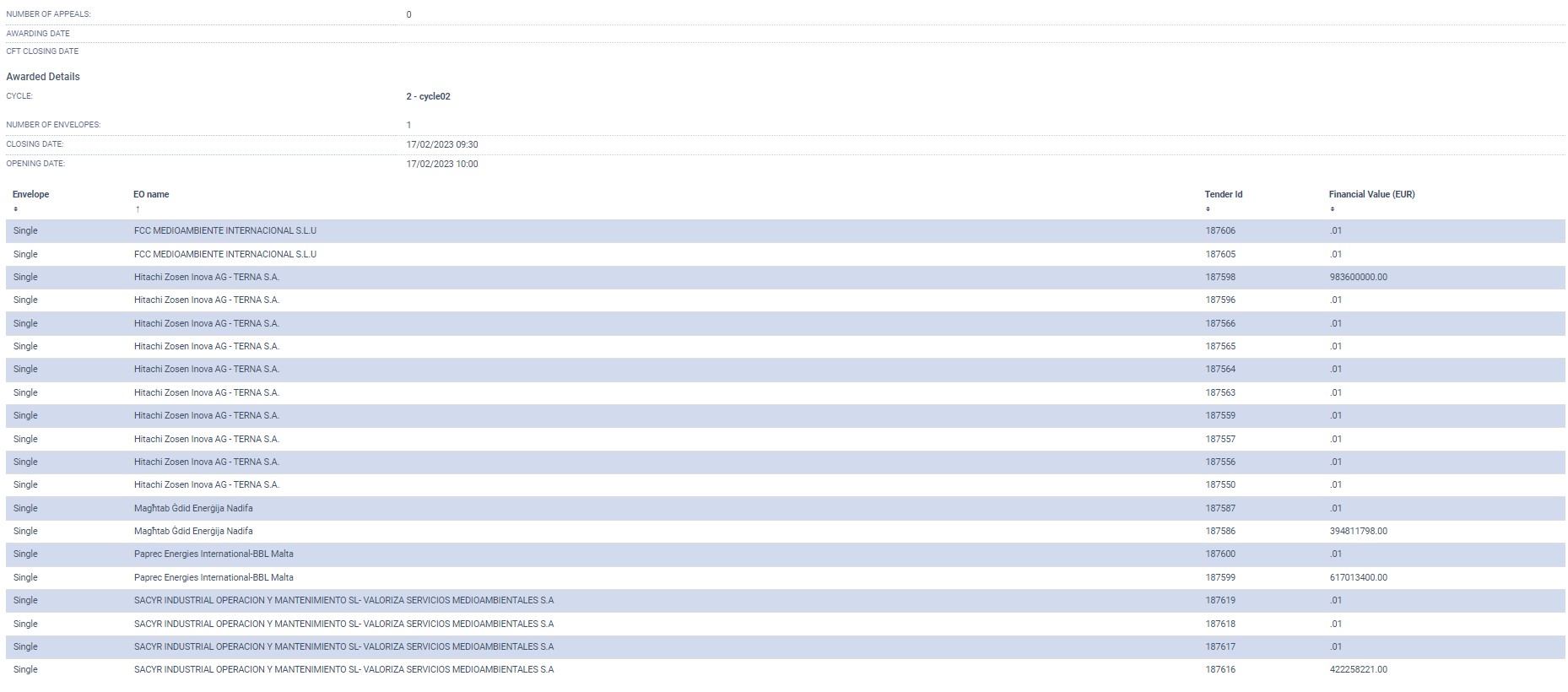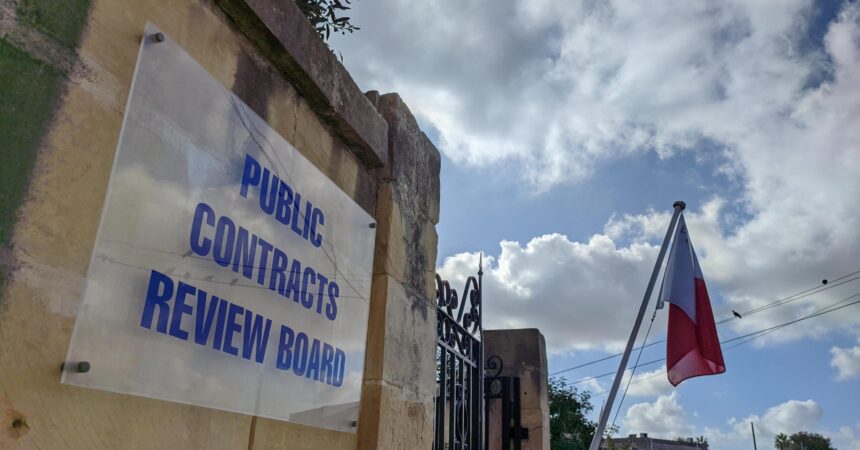The government’s electronic procurement system, which published in February the sensitive financial data of bidders for the €600 million waste-to-energy incinerator project in the name of “transparency”, lacked safeguards for cases where bidders circumvented the ‘rules’ by not submitting their data.
At a Thursday hearing in front of the Public Contracts Review Board (PCRB), questions were raised on why the system allowed one of the five final bidders, FCC Medioambiente, to decline to submit an indicative price, raising doubts on why the financial data of the other participants was published.
Second-place bidder, Hitachi Zosen’s complaint to the PCRB, maintains the publication of data made the whole process “irregular” and favoured the winning bid from a consortium comprising local construction company Bonnici Bros and French waste management company Paprec.
The new information and the fact there was no penalty or provision in place for bidders who did not publish their data questions the testimony of the former director general at the Department of Contracts, Anthony Cachia, who stated in an earlier hearing that it was published to maintain “transparency.”
The tender contract is one of the largest in Malta’s history and involved a three-part tendering process which included negotiations with the bidders, another first for the country.

The bidders’ financial details that the Contracts Department published.
Following the publication of the financial data, the Paprec/Bonnici consortium revised an earlier indicative price it had submitted, making its offer the most competitive. They were later awarded the tender.
In its challenge, which led to the case being heard before the PCRB, Hitachi said the process had “the effect of distorting competition and preventing a fair process.”
Wasteserv Chief Financial Officer Jonathan Scerri testified on Thursday afternoon in front of the board. Scerri served as the chair of an evaluating committee appointed by Wasteserv to review bidders’ submissions throughout the process and make a final recommendation for a preferred bidder.
Scerri told the board about an email exchange he had with Cachia at the Department of Contracts following the publication of the prices. Cachia assured Scerri that all was in line with procurement regulations and that this had been done to ensure “transparency” between the bidders and their offers.
Neither the Hitachi consortium nor the other bidders were made aware their sensitive financial data would be made public before the completion of the tendering process.
Pressed by Hitachi’s lawyer, Adrian Delia, Scerri said that despite the commitment to transparency, bidders “had a choice” not to submit financial information to the electronic system. Nevertheless, he also said the tender regulations stipulated that bidders must include the data for their submissions to “be as complete and final as possible.”
At a previous sitting, the board heard from a representative of the Greek company which created the electronic procurement system that it was set up to publish bidders’ financial data by default before the finalisation of the process.
While in ‘open tenders’ without a negotiating phase, the financial bids are published as a standard, this is the first tender with a negotiation stage undertaken by the Maltese government. The publication of the data happened before final bids were offered.
To show that the publication of financial data in the middle of the tender’s negotiation stage was not irregular, Cachia had claimed at an earlier sitting that public procurement cases in Cyprus had been carried out in a similar way.
Alexia Kountouri, a Cypriot lawyer specialising in public procurement, was called in as an expert witness on Thursday. She testified that in all cases previously raised by the Cypriot Department of Contracts, authorities had published financial data when the tenders received one bid rather than competing offers.
In a previous sitting, Hitachi was refused the chance to call another expert witness to the stand, economics and procurement law expert Albert Sanchez-Graells, who was expected to testify on how procurement procedures and negotiations are carried out abroad. But Wasteserv’s legal counsel, Antoine Cremona succeeded in blocking his testimony on the grounds that foreign and local legal experts could not be used as expert witnesses.
The case is expected to continue in front of the contracts review board in January 2024.













We are a Gahan people and we get what we deserve.
if “foreign and local legal experts could not be used as expert witnesses”, then, who can?